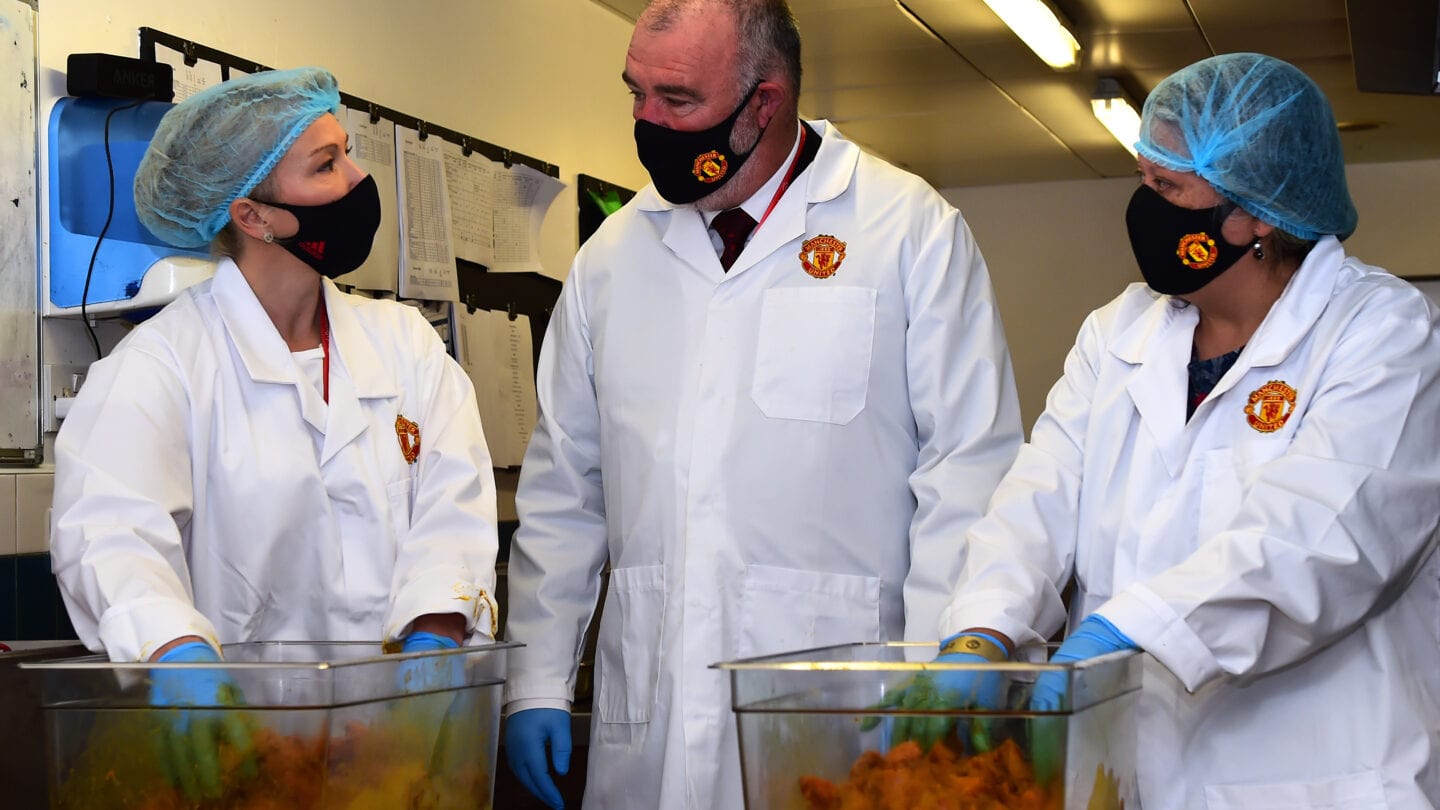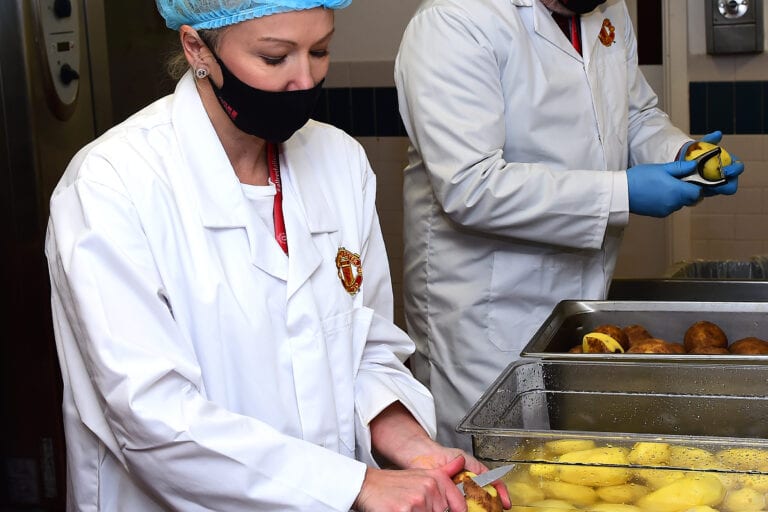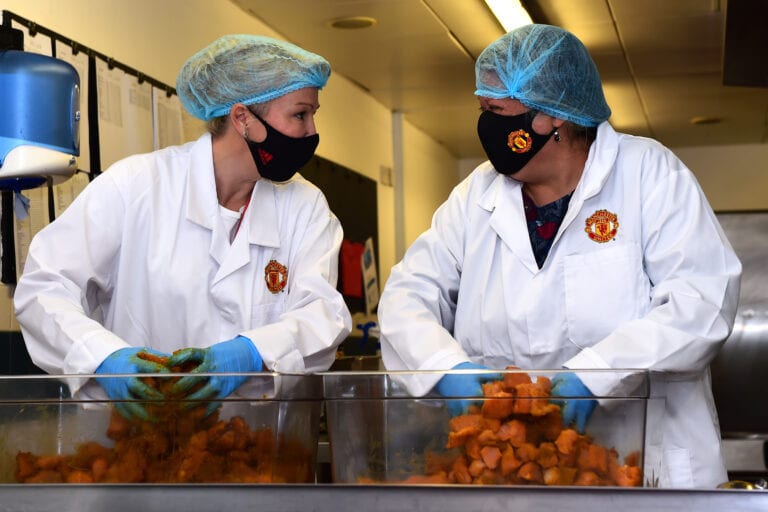In October 2020, FareShare did cook and deliver 5,000 meals to local school children in a single October half-term week. All thanks to a partnership between FareShare GM, Manchester United and Manchester United Foundation.
Each day this week, food provided by FareShare will be processed, prepared and packaged into individual meals at Old Trafford kitchen facilities by United staff, then shipped by the club to local Manchester United Foundation partner schools. The schools in turn will provide the meals to children who receive government-funded free meals during term-time.
Six schools help during October half-term week
Six schools are part of the effort:
- Waterhead Academy;
- Dean Trust Rose Bridge;
- The East Manchester Academy;
- Manchester Enterprise Academy;
- Manchester Academy, and;
- Stretford High School.
We will also deliver meals to other local charities as part of the scheme.
Since the outbreak of the COVID-19 pandemic, more and more families are dealing with food poverty. The impact of the virus, in essence, exacerbates an existing problem. Accordingly, with unemployment rising and the economic crisis biting hard, many are struggling with reduced income. As a result, many families and children simply do not have enough food and are going hungry. This initiative does not ultimately solve the issue locally. But it will make a significant difference to the lives of hundreds of families across Greater Manchester.
The serious social implications of the pandemic became clear in back in March. As a result, Manchester United and the Foundation made food poverty a central part of their COVID-19 response.
We’re incredibly proud and humbled to be working with FareShare over October half-term. This initiative will go a long way to ensuring that pupils from our partner schools and families using local food-banks have fresh meals to eat, during what we know is a difficult time for many. We’ve seen first-hand how children from socially challenged backgrounds can be even more vulnerable when they’re not in school, it’s therefore imperative to be present in their lives throughout the school holidays, showing that we care and the Foundation is always here to support.
John Shiels, Chief Executive, Manchester United Foundation
More about FareShare GM
FareShare is the UK’s biggest food charity and is a founding member of the Child Food Poverty Taskforce, set up to help end child hunger in the UK and spearheaded by Marcus Rashford.
The hardship brought on by COVID-19 has presented a challenge like nothing we’ve ever seen before. Demand for food has more than doubled and we are now distributing more than 80 tonnes of food a week – two thirds of which goes to children and families.
This partnership with Manchester United and Manchester United Foundation comes at a crucial time – it’s never been more important to ensure vulnerable children have access to good, nutritious food and we are so grateful for their support.
Miranda Kaunang, Head of Development at FareShare GM
The initiative follows on from a successful collaboration to provide 60,000 meals to NHS staff back in May between United, Manchester United Foundation, Mealforce and the club’s catering supplier, Bidfood.
With our teams back playing, the attention for many has returned to what is happening on the pitch. But our work to help support those in need has not stopped. And it will not stop as we face into the winter and the restrictions continue to impact our local communities.
Many of Manchester’s children are going hungry and they are particularly vulnerable during school holidays. Particularly when they cannot benefit from the meal voucher programme. In parallel with the brilliant work being done individually by Marcus Rashford, we’re proud that the club continues to step in alongside FareShare, the Foundation and their partner schools to help fill this void.
Collette Roche, COO, Manchester United



